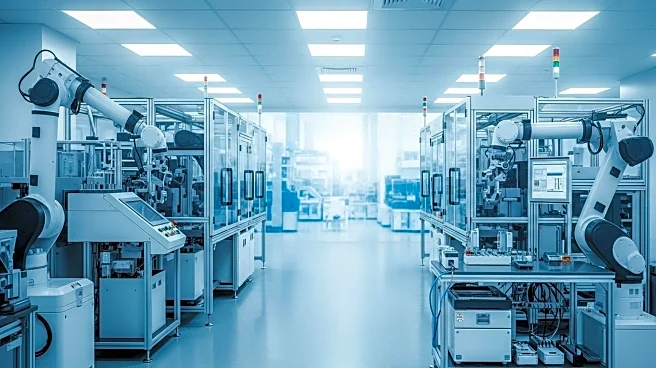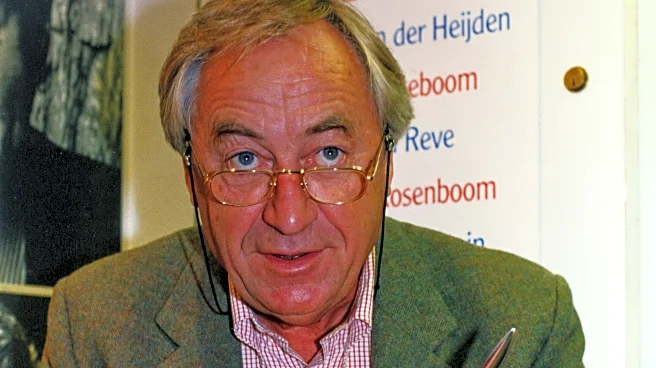What's Happening?
Eli Lilly has announced plans to invest over $1 billion in India to enhance its manufacturing capacity through local drugmakers. This strategic move aims to increase the availability of key drugs, including treatments for obesity, diabetes, Alzheimer's, cancer, and autoimmune conditions. The investment will include the establishment of a new facility in Hyderabad, which will oversee contract manufacturing and provide technical capabilities. This decision comes amid a global shift towards bolstering U.S. manufacturing capacity, following the Trump administration's imposition of a 100% tariff on imported branded and patented drugs starting October 1. Eli Lilly's expansion in India is part of a broader $27 billion plan to build new plants in the U.S. over the next five years.
Why It's Important?
Eli Lilly's investment in India is significant as it leverages the country's skilled workforce to bolster global manufacturing capabilities. This move is expected to enhance the availability of essential medications, potentially benefiting patients worldwide. Additionally, the investment reflects a strategic response to increased competition from India's generic drugmakers, who are preparing to launch cheaper versions of popular drugs. The expansion in India also aligns with global trends of pharmaceutical companies seeking to diversify their manufacturing bases amid geopolitical shifts and trade policies. The establishment of a new facility in Hyderabad is likely to create job opportunities and contribute to the local economy.
What's Next?
Eli Lilly plans to begin recruitment for its new Hyderabad facility immediately, seeking engineers, chemists, analytical scientists, quality control and assurance experts, and managers. The company is actively engaging with contract manufacturers in India to facilitate its expansion. As the pharmaceutical landscape evolves, Eli Lilly may face increased competition from generic drugmakers in India, particularly as patents expire on key drug ingredients. The company's strategic investments in both India and the U.S. are expected to position it favorably in the global market, ensuring a steady supply of medications and potentially influencing drug pricing and availability.
Beyond the Headlines
Eli Lilly's investment in India highlights the growing importance of international collaboration in the pharmaceutical industry. By expanding its manufacturing capabilities in India, the company is not only addressing immediate supply chain needs but also fostering long-term partnerships that could lead to innovation and development in drug manufacturing. This move may also prompt other global pharmaceutical companies to consider similar investments, potentially reshaping the industry's approach to manufacturing and distribution. The ethical implications of drug pricing and access remain a critical consideration as companies navigate the complexities of global trade and healthcare demands.











